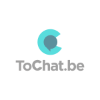GLOSWI visit report to Nigeria 2019

Across the three affected states of Borno, Adamawa and Yobe (BAY), 7.1 million people are estimated to be in need of humanitarian assistance in 2019 out of the total population of 13.4 million, with continuous displacement movements as a result of attacks and military operations.
Over eighty per cent of internally displaced people are in Borno State, the epicenter of the crisis, and over sixty percent are living in host communities, making it harder to access them with assistance and putting additional pressure on the already stretched resources of these communities. One in four of the internally displaced people are under five, and 80 per cent are women and children.
However, some 1.6 million people have returned home since August 2015, indicating that conditions in some locations have improved.
Humanitarian organizations are not able to meet all needs in the north-east; more than 800,000 people in Borno State are estimated to be in areas inaccessible to humanitarian organizations, either because of conflict or impassible roads during rainy season.
Durable solutions are needed to address the risks and vulnerabilities of those most affected by the crisis, especially internally displaced people and refugees, and to reduce humanitarian needs.
Specifically for WASH, people in need of services: is estimated at 3.5 million (1.1M IDPs, 0.9M returnees, 0.7M host 2 community and 0.8M hard to reach).
In addition to the ongoing conflict which has created mass displacement and the need for water, sanitation and hygiene (WASH) facilities in camps and camp-like settings, WASH needs in Nigeria’s north-east are compounding the malnutrition situation, and contributing to the spread of epidemics such as cholera or hepatitis E.





